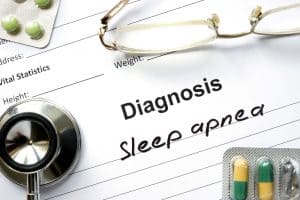
Previously, the way to identify these disorders would be through manual scoring, which is time-consuming and can lead to inaccuracies.
A deep learning model developed by researchers at the University of Eastern Finland is able to identify sleep stages as accurately as a qualified physician.
This could be used to diagnose multiple sleeping disorders, such as obstructive sleep apnea (OSA). Previously, the way to identify these disorders would be through manual scoring, which is time-consuming and can lead to inaccuracies.
SEE ALSO: What We’re Learning About Deep Learning
The deep learning model was fed data from healthy individuals and those with suspected OSA. It was able to correctly identify sleep stages in healthy individuals’ 83 percent of the time and 76 percent of the time for those with severe OSA, similar to the accuracy of an experienced physician.
Instead of the time-consuming manual scoring, the deep learning model is able to predict autonomously and quickly. This reduces the amount of time it takes to diagnose an illness and the cost of assessing a patient, which may lead to a higher volume of assessments.
“Deep learning enables automatic sleep staging for suspected OSA patients with high accuracy and expectedly, the accuracy lowered with increasing OSA severity,” said the paper’s authors.
“Furthermore, the accuracies achieved in the public dataset were superior to previously published state-of-the-art methods. The automatic, single-channel-based sleep staging could enable easy, accurate, and cost-efficient integration of electroencephalography channel recording into diagnostic ambulatory recordings.”



























